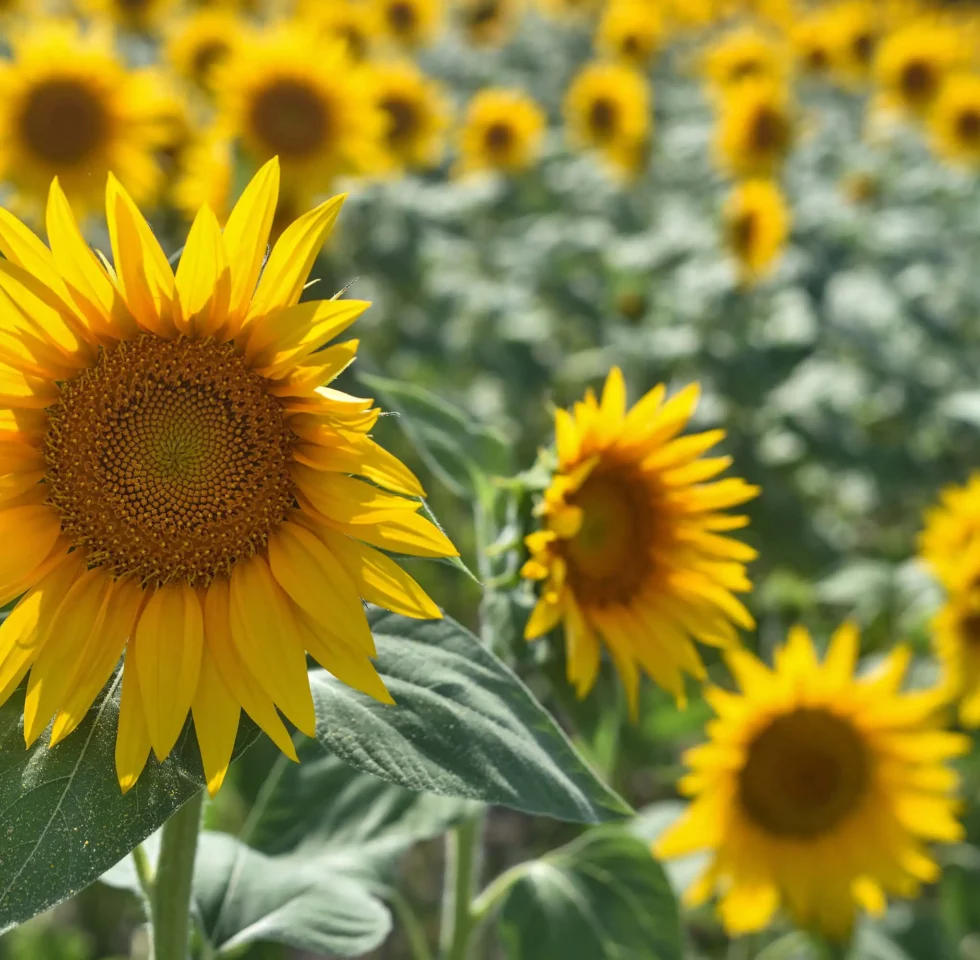How to Harvest Organic Flax: Risks, Setups, and Lessons Learned
September 19, 2025Flax harvest is tricky but rewarding. See how we time harvest, adjust combine setups, and manage risks for yield and seed quality.
Read article
The global agricultural landscape has been undergoing a transformation towards more sustainable practices and organic farming has gained substantial attention for its eco-friendly and healthy food production. One common misconception about organic farming is that its yields are lower than conventional methods.
The video below showcases our organic sunflower farming operation that demonstrates the potential to match the yields of conventional cultivation methods. This achievement raises questions about the possibility of bridging the yield gap between organic and conventional sunflower farming. How was this accomplished?
Quality sowing techniques ensure uniform and efficient distribution of sunflower seeds. This precision in sowing (this link will take you to the field map in our Farming software, where you can access key data from the actual sowing of sunflowers) minimized competition among sunflowers, resulting in healthier and more productive sunflower plants.
Another key factor contributing to high yields in sunflower harvesting was the maintenance of an optimal plant density per hectare. Ensuring that the sunflower field was populated with the right number of plants allowed for efficient resource utilization.
Weed control plays a pivotal role in organic sunflower farming. To reduce their influence on sunflower growth, we implemented a proactive weed control strategy. First, post-sowing, pre-sprouting weed control (this link will take you to the field map in our Farming software at the time of this operation) was employed to tackle weeds in their budding phase. Subsequently, two inter-row cultivation methods were employed, which are well-known among sunflower farmers. By monitoring and keeping weeds at bay, we ensured that sunflowers received the nutrients, sunlight, and moisture they needed to thrive.
As we are a sustainable and organic farm, we don’t use pesticides and mineral fertilizers, and we employ only plant-based green manure. By doing so, we are not only contributing to the well-being of the environment and people who end up consuming these crops, but also significantly reduce overall sunflower production costs.
Another noteworthy aspect of this organic sunflower farming operation was its use of our own data-driven farming software for sunflower field monitoring. This technology enables us to make informed decisions and optimally plan our activities and crop rotations, where sunflower crops occupy approximately 25 percent of the surface area and come last in our rotation practice. We produce two types of sunflower – linoleic and confectionary – and they have been recently certified with Naturland standard, besides being EU BIO and BioSuisse Organic certified last year.
Flax harvest is tricky but rewarding. See how we time harvest, adjust combine setups, and manage risks for yield and seed quality.
Read articleWe presented our plant-based sustainable farming model at the BELIS meeting in Novi Sad, joining more than 60 researchers from 17 EU countries.
Read articleDiscover our practical tips for a successful organic pea harvest. Learn when to start, how to set combines, and manage residues for better quality and higher yields.
Read article